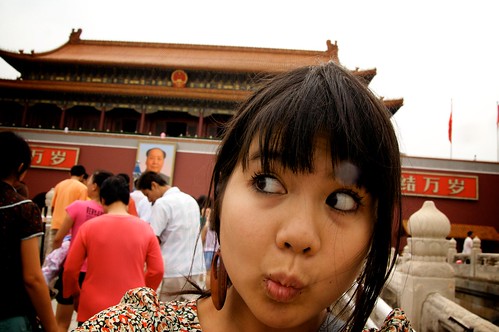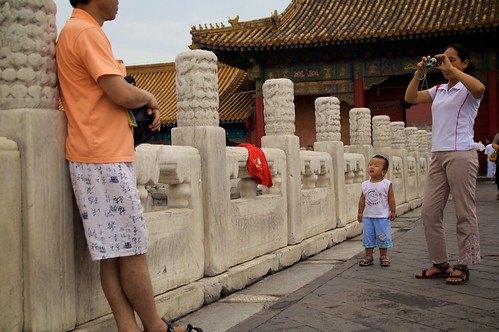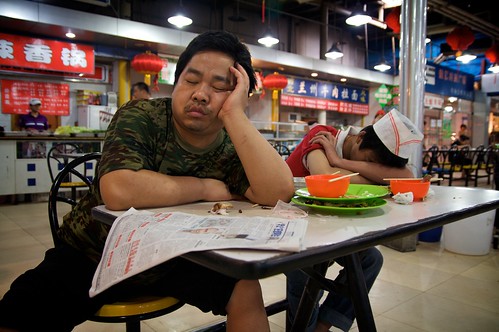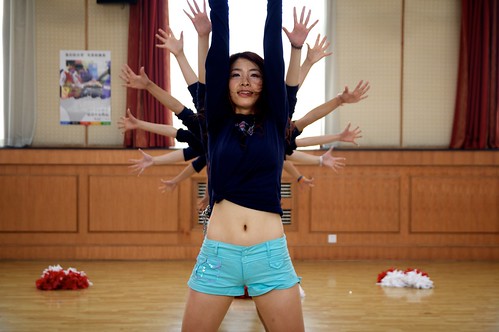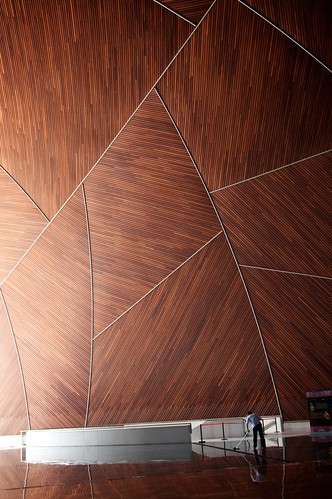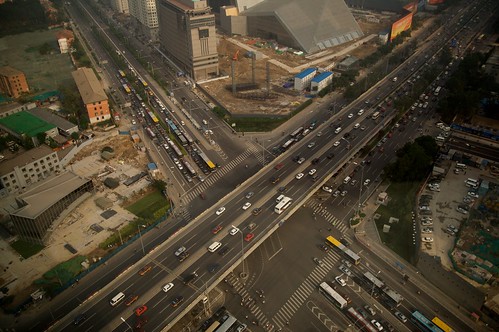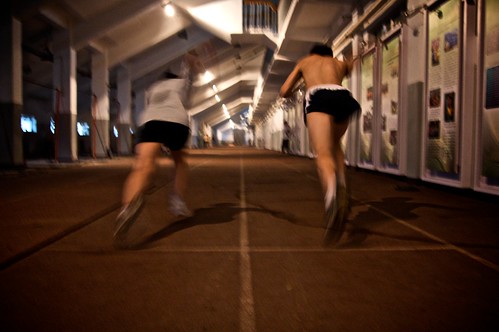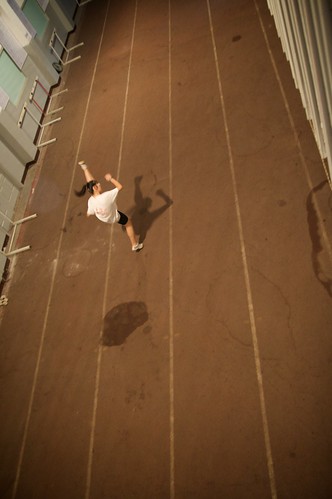You get the right angle, turn a little wheel on your camera, correct your lighting, click, you got your shot.
It sounds like an idealist's ode to the photojournalist. And yes, there seem to be a few great photographers out there, who seem to be able to live for a month on one photo's earnings.
But the viewer clicks on. To photo slideshows, photo series, photos tagged in albums, to interactive maps and graphics. And so a photographer either goes on a scavenger hunt for the next interactive map, running from one building/person/event to the next; or has to take mug shots of 50 people who give representative opinions, Man-On-The-Street polls on the elections, Britney Spears, Detergent; or is s/he is one of 40 random photographers who work for Getty Images, the AP, Reuters, Corbis, who contribute namelessly to a larger project.
It slaps the photog ego in the face, which is sort of satisfactory to me. It takes away from Walter Benjamin's prediction that photography politicizes/is inherently politicized due to its fake objectivity, its need for a verbal framing. Now the multimedia framing negates its singularity. Takes away from its wordlessness. Contextualizes the photograph for the consumer, while s/he is just as capable of re-contextualizing the image through posting it on facebook/blogger. The image has become a free-floating currency. The iconic image mutates into a malleable (both in size and meaning) broche, worn, traded, bought, lost, sold. And it loses its charisma, or to use Benjamin's vocabulary, its aura, once more.

